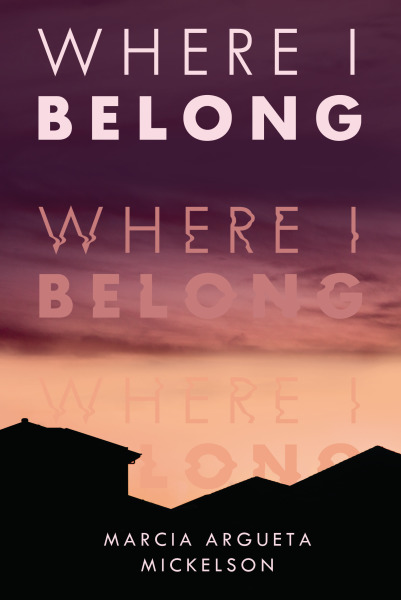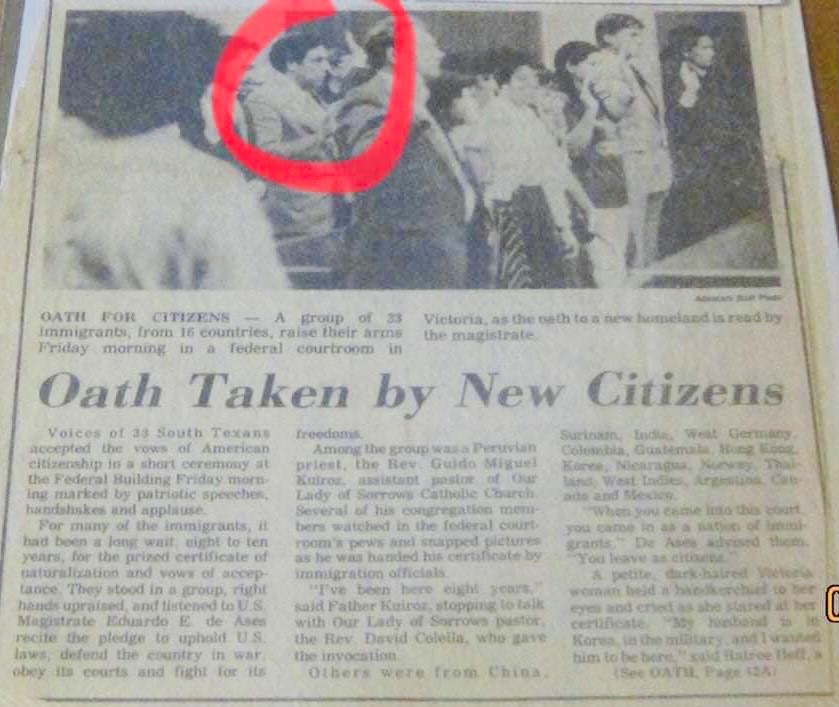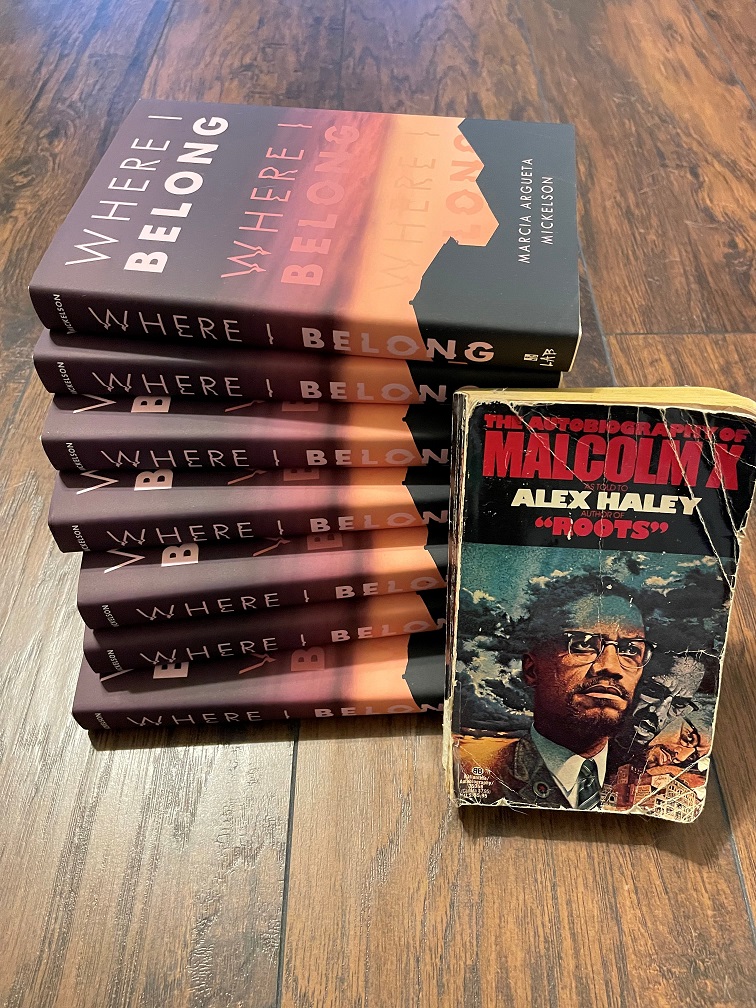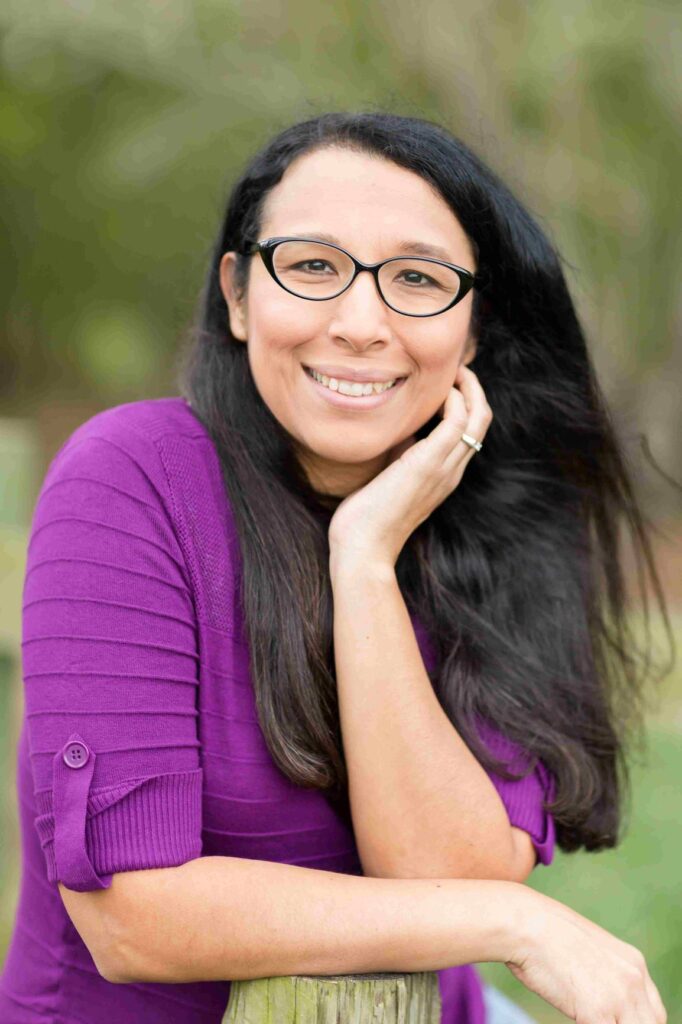Lifting Their Voices, a guest post by Marcia Argueta Mickelson

As a teen, I didn’t have a voice. Well, technically I did, but I didn’t use it. My voice was hidden; it lived in fear of being seen or heard by anyone around it. My voice was so quiet that, in my junior year of high school, a bee stung me during math class, and I said nothing. I didn’t tell my teacher or my classmates. I didn’t ask to go to the nurse. I sat in pain for the rest of the day until I got home and told my mom.
My voice was so scared of being heard that it couldn’t even advocate for my own well-being. This was due to social anxiety or extreme shyness or both. Perhaps I quieted my voice because I always had a sense of not belonging wherever I was. There were loud, overwhelming voices telling me that since my family came to the U.S. as undocumented immigrants, I didn’t belong. So, I quieted my voice even more. One day, I missed school to attend my naturalization ceremony and receive my citizenship. The next day, my teacher asked why I was absent, and I was too embarrassed to tell him the reason. I could have spoken out in celebration of a wonderful experience, but I hid it.
ADVERTISEMENT
ADVERTISEMENT

It was in the last year of my teens that I finally found my voice and realized that I needed to use it. This realization came in the form of a transformative book. In a college class, we were assigned to read The Autobiography of Malcolm X. In Malcom X’s writings, I discovered my voice. His message taught me to be proud of who I am and where I came from. His words inspired me to feel pride in my very small voice, and I became resolved to amplify it to advocate for myself and for others.

One of the reasons I love to read and write about teens is because in these young characters, I see them doing what I could never do at that age—lifting their voices. I see these young characters using their voices to say many important things.
We see young people speaking out to advocate for themselves or for other people all of the time, and I am in awe of their courage. The young people who formed the March For Our Lives movement were compelled to speak out against gun violence. They used their voices to create a huge movement. A young undocumented immigrant used her voice during her valedictorian speech in Texas to advocate for undocumented immigrants. Greta Thunberg, with her very young voice, inspired students all over the world to join her strike for climate change. Today’s young people are advocating for change in a way I could never imagine doing when I was a teen. I lacked their courage.
While I was not courageous enough to use my voice as a teen, I can now create fictional characters who are not afraid as I was or who overcome their fear to speak out.
In my book, Where I Belong, Millie Vargas is the oldest daughter of parents who came to the U.S. from Guatemala as undocumented immigrants. The book begins with Millie keeping her voice small, not wanting people to know that her she and her parents were once undocumented. She lives her life quietly, helping to take care of her siblings when her mother is at work. Millie’s quiet existence gets thrown into the spotlight when her mother’s employer, a Senate candidate, shares their story at a campaign event. He praises Millie’s family as deserving immigrants because of their work ethic and Millie’s straight A’s. The media recognition brings out trolls who denigrate and threaten Millie. At the same time, activists and reporters want Millie to speak publicly, to tell her story and advocate for immigrants. Millie doesn’t like the spotlight and wants everyone to forget about her. Susanna, an undocumented teen from a neighboring city, reaches out to Millie and invites her to a rally. Millie hesitates, but as she sees that Susanna is willing to put herself in danger of deportation by attending the rally, Millie decides to go. She takes the stage at the rally and tells her story.
ADVERTISEMENT
ADVERTISEMENT
Millie was scared to use her voice to speak out for the undocumented, but she overcame her fears for a great cause. She was inspired by another teen to use her voice. Although she was hesitant at first, it didn’t take her nearly as long as it did for me to find and use my voice. Even though I am not a teenager anymore and never had the courage to do what I see so many young people doing, I am thrilled that I get to create characters who find the courage to lift their voices.
What a wonderful generation of youth that surrounds us who elevate their voice, sometimes individually and sometimes collectively to uplift, inspire, protest, resist, inform, or advocate.
Meet the author

Marcia Mickelson was born in Guatemala and immigrated to the United States as an infant. She attended high school in New Jersey and then graduated from Brigham Young University with a BA in American Studies. She is the author of five novels including Star Shining Brightly, The Huaca, and Where I Belong. She lives in Texas with her husband and three sons.
Marcia Argueta Mickelson’s Website: http://marciamickelson.com/
Instagram: https://www.instagram.com/marciamickelson/
Twitter: https://twitter.com/marciamickelson
About Where I Belong
An immigrant teen fights for her family, her future, and the place she calls home.
In the spring of 2018, Guatemalan American high school senior Milagros “Millie” Vargas knows her life is about to change. She’s lived in Corpus Christi, Texas, ever since her parents sought asylum there when she was a baby. Now a citizen, Millie devotes herself to school and caring for her younger siblings while her mom works as a housekeeper for the wealthy Wheeler family. With college on the horizon, Millie is torn between attending her dream school and staying close to home, where she knows she’s needed. She’s disturbed by what’s happening to asylum-seekers at the U.S.-Mexico border, but she doesn’t see herself as an activist or a change-maker. She’s just trying to take care of her own family.
Then Mr. Wheeler, a U.S. Senate candidate, mentions Millie’s achievements in a campaign speech about “deserving” immigrants. It doesn’t take long for people to identify Millie’s family and place them at the center of a statewide immigration debate. Faced with journalists, trolls, anonymous threats, and the Wheelers’ good intentions—especially those of Mr. Wheeler’s son, Charlie—Millie must confront the complexity of her past, the uncertainty of her future, and her place in the country that she believed was home.
ISBN-13: 9781541597976
Publisher: Lerner Publishing Group
Publication date: 09/07/2021
Age Range: 12 +
Filed under: Uncategorized
About Amanda MacGregor
Amanda MacGregor works in an elementary library, loves dogs, and can be found on BlueSky at @amandamacgregor.bsky.social.
ADVERTISEMENT
ADVERTISEMENT
SLJ Blog Network
The 2025 Ninja Report: It’s Over
Review of the Day: The Black Mambas by Kelly Crull
Ghost Town | Review
30 Contenders? Our Updated Mock Newbery List
When Book Bans are a Form of Discrimination, What is the Path to Justice?
ADVERTISEMENT







